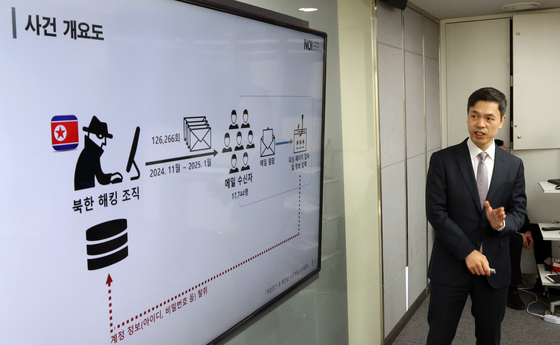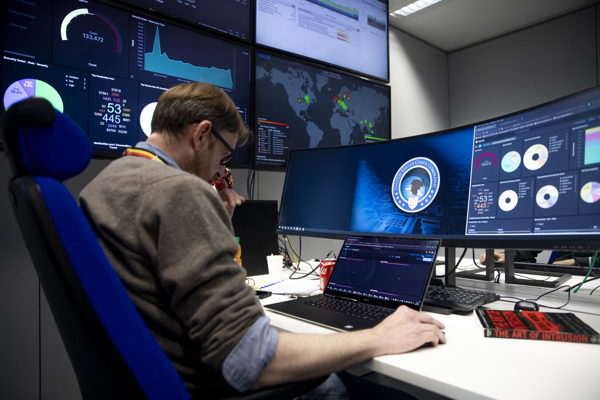Cyber Alert: UK Firms on High Guard Against North Korea's Digital Deception Scheme
Companies
2025-04-21 02:54:39Content

In a proactive move to combat potential cybersecurity threats, the British government is calling on businesses to prioritize face-to-face or video interviews during their recruitment processes. The urgent advisory stems from mounting evidence that North Korean IT workers are increasingly using sophisticated tactics to masquerade as remote freelancers and gain unauthorized access to international companies.
Officials are concerned about the growing trend of these workers exploiting remote work opportunities to infiltrate foreign organizations. By conducting more personal and interactive interview methods, companies can better verify the true identity and background of potential employees, thereby reducing the risk of inadvertently hiring individuals with malicious intent.
The government's recommendation highlights the critical need for enhanced screening procedures in an era of global remote work. Employers are advised to implement rigorous verification processes, including video interviews, background checks, and direct communication channels to ensure the authenticity of job applicants.
This guidance underscores the ongoing challenges of cybersecurity and the evolving strategies employed by state-sponsored actors seeking to compromise corporate networks and sensitive information systems.
Cyber Infiltration Alert: North Korean Tech Workers Exploit Remote Work Landscape
In an era of unprecedented digital connectivity, the global workforce faces an emerging threat that challenges the very foundations of remote employment. As boundaries blur and technology bridges geographical divides, sophisticated cyber actors are finding increasingly creative ways to penetrate international corporate networks.Unmasking the Digital Deception: A Global Cybersecurity Challenge
The Rise of Remote Work Vulnerabilities
The exponential growth of remote work has inadvertently created a complex landscape where traditional hiring practices are being systematically exploited. North Korean IT professionals have developed intricate strategies to infiltrate global organizations by disguising their identities and leveraging digital platforms. These highly skilled operatives meticulously craft online personas that appear legitimate, utilizing advanced social engineering techniques to bypass conventional screening processes. Cybersecurity experts have observed a disturbing trend where these sophisticated actors create comprehensive digital footprints that withstand initial scrutiny. They invest significant time in developing robust online portfolios, maintaining consistent digital identities across multiple platforms, and cultivating professional networks that lend credibility to their fabricated backgrounds.Technological Masquerade: Identifying Hidden Threats
The British government's proactive stance highlights the critical need for enhanced verification mechanisms in remote hiring processes. By mandating in-person or video interviews, organizations can implement crucial human-centric authentication methods that digital screening processes often overlook. These direct interactions provide nuanced insights into a candidate's authenticity that automated systems cannot detect. Sophisticated verification techniques now involve multi-layered background checks, real-time communication assessments, and collaborative verification strategies that transcend traditional recruitment protocols. Machine learning algorithms and advanced biometric technologies are being developed to create more robust screening frameworks capable of identifying potential impersonation attempts.Geopolitical Dimensions of Cyber Infiltration
The phenomenon extends beyond mere employment subterfuge, representing a complex geopolitical strategy designed to compromise international corporate infrastructure. North Korean state-sponsored actors view these infiltration attempts as strategic intelligence gathering operations, potentially targeting sensitive technological ecosystems and extracting valuable proprietary information. Intelligence agencies worldwide are increasingly recognizing these recruitment strategies as sophisticated cyber warfare tactics. The economic and technological implications of such systematic infiltration could potentially destabilize global tech industries, creating unprecedented challenges for international cybersecurity frameworks.Protective Strategies for Modern Organizations
Organizations must adopt comprehensive, multi-dimensional approaches to mitigate these emerging risks. This involves developing robust recruitment protocols that combine technological screening with human intelligence, implementing stringent identity verification processes, and cultivating a culture of cybersecurity awareness. Training programs focusing on recognizing sophisticated impersonation techniques, developing advanced digital forensic skills, and understanding the psychological manipulation strategies employed by these actors are becoming increasingly critical. Collaborative international frameworks that share threat intelligence can help create more resilient global defense mechanisms against such sophisticated cyber infiltration attempts.Technological Evolution and Human Vigilance
As remote work continues to transform global employment landscapes, the intersection of human judgment and technological innovation becomes paramount. The ongoing cat-and-mouse game between cyber actors and defensive technologies requires continuous adaptation, sophisticated understanding, and proactive strategic thinking. The British government's advisory serves as a critical reminder that while technology enables unprecedented global connectivity, human discernment remains an irreplaceable component in maintaining organizational security integrity.RELATED NEWS
Companies

Drone Tech Dilemma: Silicon Valley's Hidden Chinese Supply Chain Vulnerability
2025-04-16 10:30:00
Companies

Retail Giant Target Pledges Substantial Contribution to Presidential Inauguration Fund
2025-04-29 17:59:35
Companies

Arizona's Wildfire Blame Game: Utility Companies Face Tougher Accountability
2025-04-22 23:02:12





